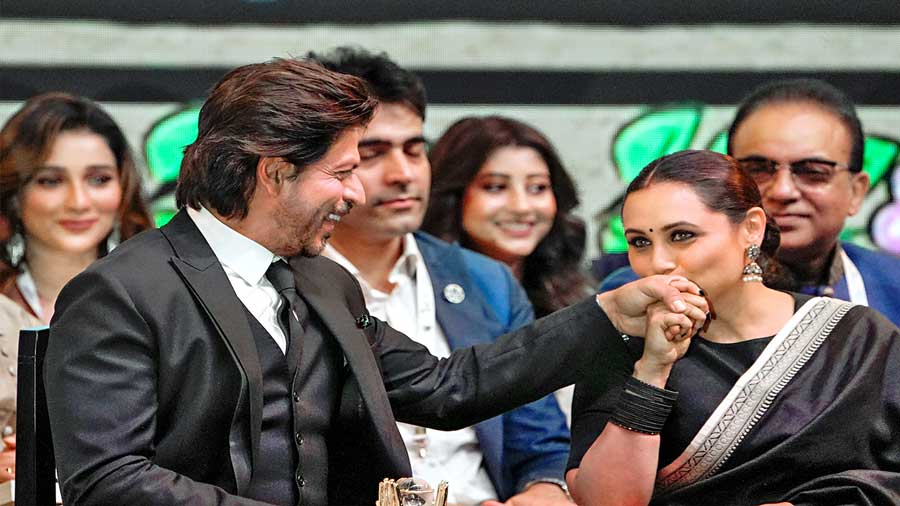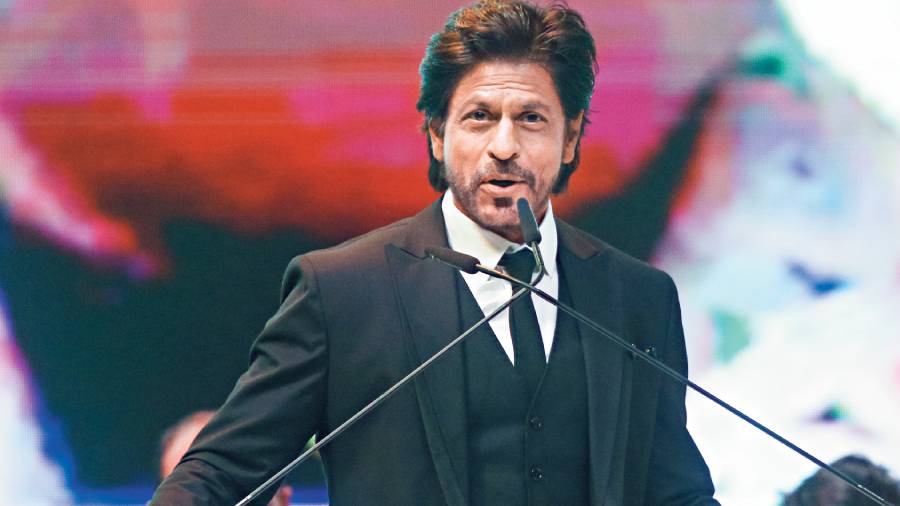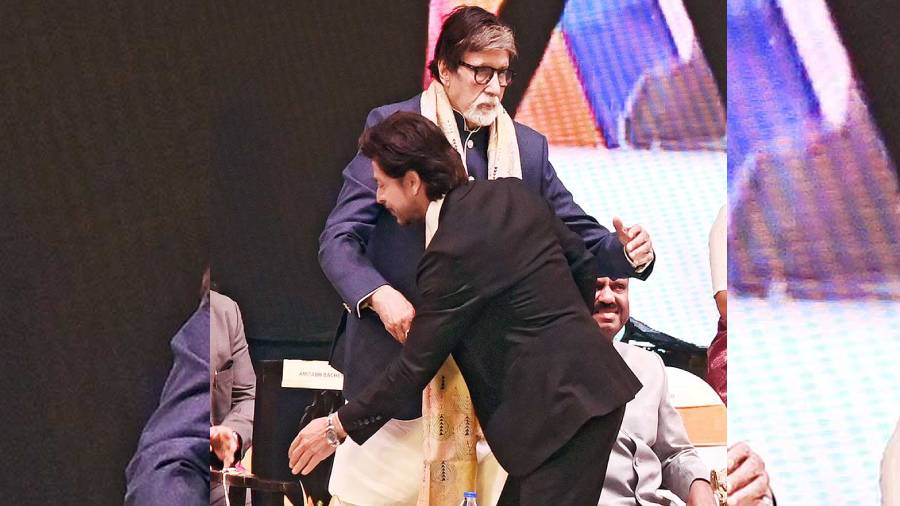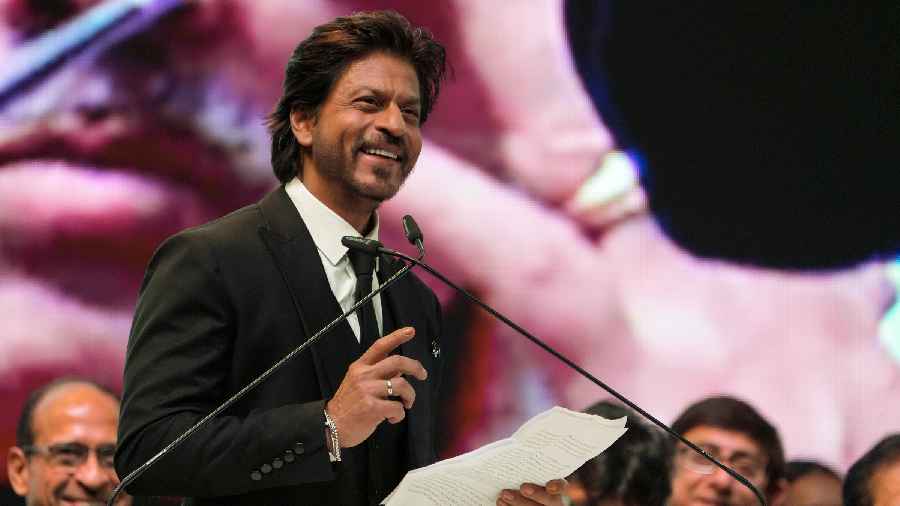Amitabh Bachchan and Shah Rukh Khan on Thursday chose Calcutta to remind the nation of the priceless legacy of cinema in promoting the once-cherished values of India and flag concerns that have plunged Bollywood into an existential crisis.
Masters of articulation, both superstars steered clear of direct reference to any contemporary controversy. But, read between the lines, the statements at the inaugural event of the Kolkata International Film Festival (KIFF) at Netaji Indoor Stadium on Thursday left little unsaid.
The statements came at a time Bollywood, once celebrated for its inclusiveness and secular moorings, has come under siege from the Rightwing ecosystem, stifling its stars and stymying its creative impulses. Losing its nerve, Bollywood is now banking on southern remakes for spontaneous hits.
The usually taciturn Bachchan described the current brand of period films as “couched in fictionalised jingoism”. Bachchan made no reference to the elephant in the room: The Kashmir Files debate that saw an Israeli filmmaker say what the Indian influencers should have said.

Shah Rukh Khan with Rani Mukerji at the 28th Kolkata International Film Festival on Thursday. PTI
Israeli filmmaker and jury chief Nadav Lapid had said at the recent International Film Festival of India in Goa that The Kashmir Files was “vulgar” and “a propaganda movie”
Shah Rukh, who has a way with words, underscored the capacity of cinema to address the “larger nature of humankind”, as opposed to social media which often “limits human nature to its baser self”.
Cinema, he said, is best placed to sustain “a collective counter-narrative that speaks to the larger nature of humankind, a narrative that brings to the fore humanity’s intense capacity for compassion, unity and brotherhood”.
Quoting the festival’s tagline “Meeting the World at the World of Cinema”, Shah Rukh said that this was the call of the day —“not just meeting but also using the power of cinema as a vehicle of people of different cultures, colours, castes and religion to better understand each other”.

Shah Rukh speaks at the festival. Picture by Pradip Sanyal
“Hamare jaise positive log zinda hai (We are positive and alive),” he added.
Read together, two of the most popular Indians were making one of the most important statements ever to emanate from an industry that is often accused of being indifferent to the crises facing the country.
It is tempting to link Shah Rukh’s reminder of the values of cinema to the hate campaign his new film, Pathaan, has run into. But his words appeared more profound than a mere reference to one production or his individual interest.
Protests linked to the Sangh parivar have been staged in various parts of the country alleging a community has been offended by the film’s song Besharam Rang.
Bachchan, among the first stars to warm up to Narendra Modi’s efforts to promote Gujarat as a tourist destination and who had denied knowledge of any law in Maharashtra banning the consumption of beef, said at the Calcutta event on Thursday: “Since early times there have been many changes in cinema content... from mythological films and socialist cinema to the advent of the angry young man... to the current brand of historicals, couched in fictionalised jingoism, along with moral policing.”
He added that “the range has kept audiences reflecting on the politics and social concerns” of the times.
The actor said that even now “questions are being raised on civil liberties and freedom of expression” by Indian cinema.
The superstar spoke of Satyajit Ray, and pointed out that his 1989 movie Ganashatru (An Enemy of the People) was perhaps an indication of how Ray may have reacted to the current times.
Bachchan told the audience: “The festival, ladies and gentlemen, has always celebrated the inclusive spirit of cinema beyond the confines of what Gurudeb Rabindranath Tagore called ‘narrow domestic walls’. I salute you Kolkata for giving me my first job; I salute you Kolkata for giving Jaya her first film…. But most of all I salute you for your artistic temperament that embraces the essence of plurality and equality. This is what makes Bengal so special.”
Chief minister Mamata Banerjee, in her vote of thanks, appealed that Bachchan, who turned 80 this October, be conferred the Bharat Ratna. She also stressed that Bengal fights for and will continue to “fight for unity”.












